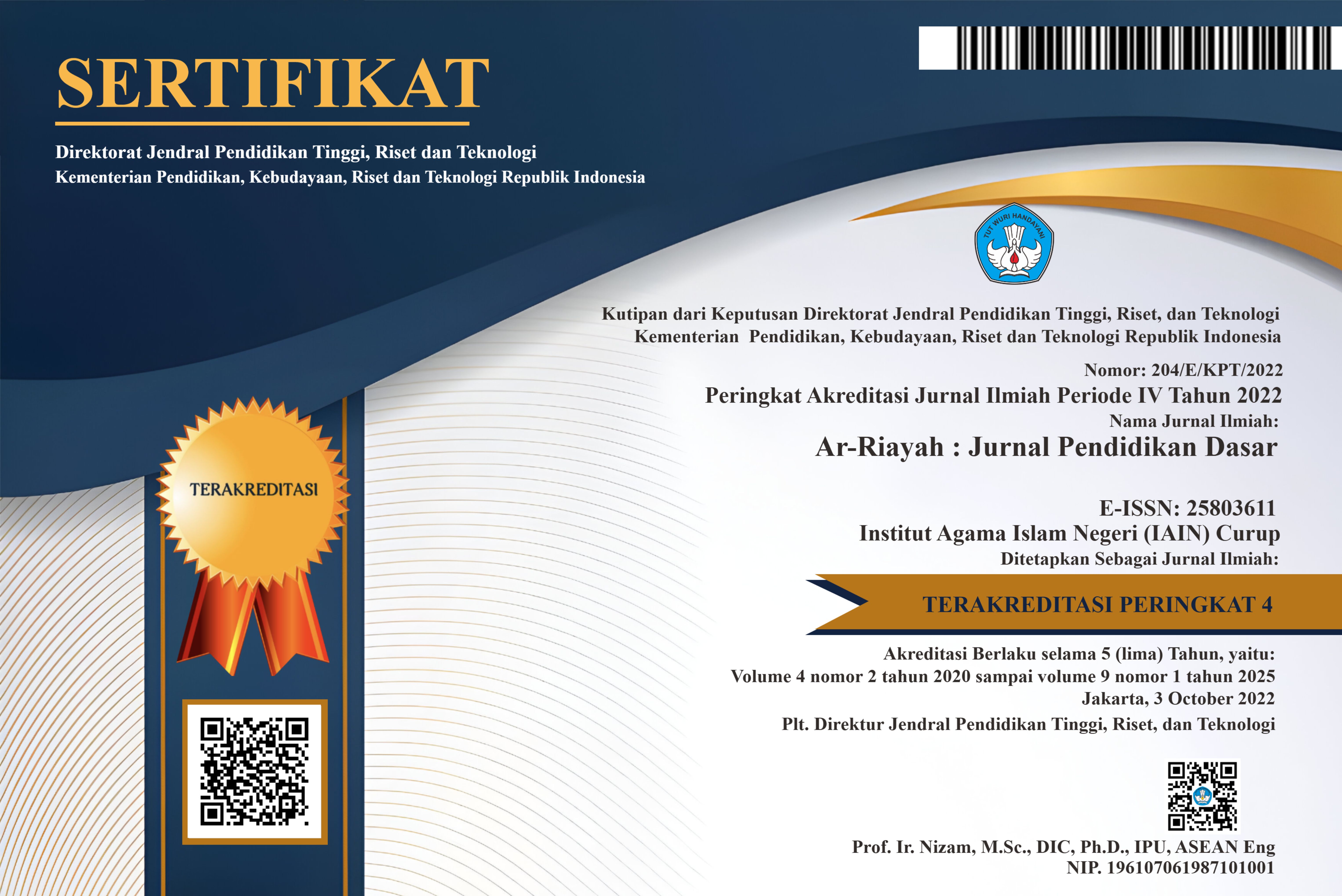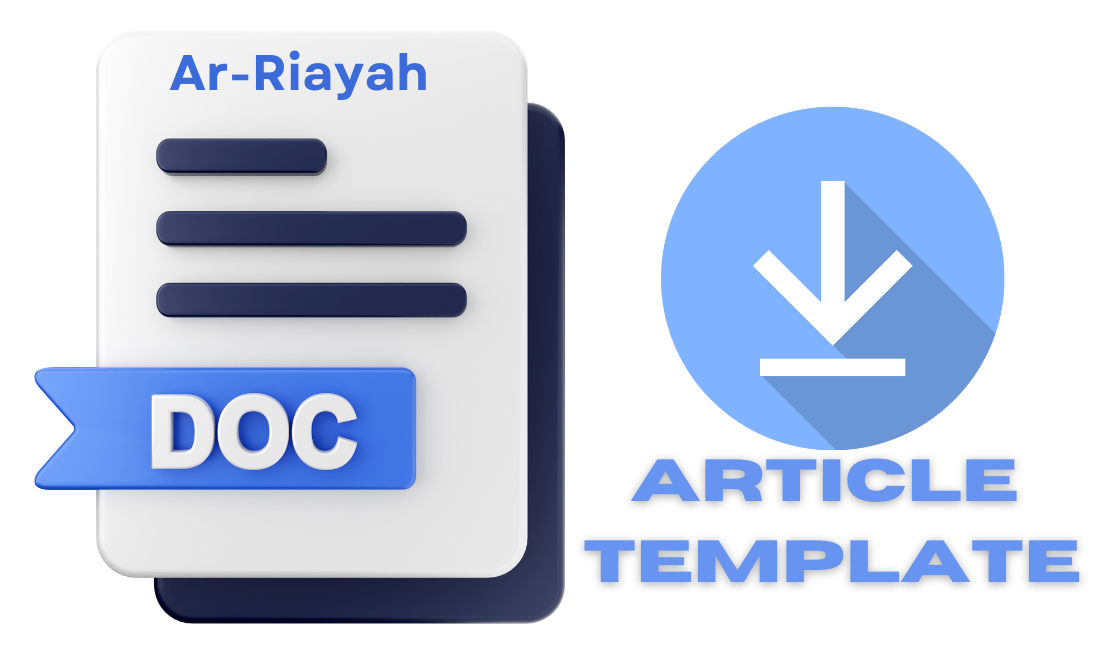Perkembangan Pendidikan IPS di Indonesia pada Tingkat Sekolah Dasar
DOI:
https://doi.org/10.29240/jpd.v6i1.4359Keywords:
Development, Social Studies Education, Curriculum, Elementary SchoolAbstract
Social Sciences Education is a study of the social sciences and humanities that aims to improve citizens' abilities. The social studies disciplines in Indonesia are aimed at helping students gain information, awareness, and analytical skills regarding a society's social conditions as they prepare to enter a dynamic society. The foundation of social studies is reality and social phenomena, which are achieved through an interdisciplinary approach from many social science areas. Over time, social studies education in elementary schools has undergone various developments and curriculum changes. In Indonesia, social science education was introduced in 1975 and used the 1975–2006 curriculum. With the materials separately, the development and renewal of the curriculum took place so as to create the 2013 curriculum, which packs social studies education materials in an integrated manner. These changes and developments aim to improve the quality of Indonesian education and create students who can think critically in order to meet the challenges of the times so that they can compete globally. The author collects data through a literature review in order to write this scientific essay. It is intended that by writing this article, the author will be able to describe the evolution of social studies education in Indonesia at the primary school level, as well as the advantages of the many curricula utilized.
Downloads
References
Daga, Agustinus Tanggu. “Kebijakan Pengembangan Kurikulum Di Sekolah Dasar (Sebuah Tinjauan Kurikulum 2006 Hingga Kebijakan Merdeka Bajar).†jurnal edukasi sumba (2020). http://jurnalstkip-weetebula.ac.id/index.php/jes/article/view/179.
Endayani, Henni. “Pengembangan Materi Ajar Ilmu Pengetahuan Sosial.†Ijtimaiyah 1, no. 1 (2017): 92–110. http://jurnal.uinsu.ac.id/index.php/ijtimaiyah/article/download/1158/922.
———. “SEJARAH DAN KONSEP PENDIDIKAN IPS†II (2018). http://ejournal-ittihad.alittihadiyahsumut.or.id/index.php/ittihad/article/viewFile/43/36.
erdayra rr, Yenni rambe. “Ips Dan Ilmu -Ilmu Sosial†(2020).
Hidayat, Bobi. “TINJAUAN HISTORIS PENDIDIKAN IPS DI INDONESIA†4 (2020). https://ejournal-pasca.undiksha.ac.id/index.php/PIPS/article/view/3493.
Ilhamuddin. “SEJARAH KURIKULUM DI INDONESIA (Studi Analisis Kebijakan Pengembangan Kurikulum)†I (2014). https://media.neliti.com/media/publications/226468-sejarah-kurikulum-di-indonesia-studi-ana-bac69203.pdf.
Indraswati, Dyah. “Pendidikan IPS Menjawab Tantangan Abad 21: Sebuah Kritik Atas Praktik Pembelajaran IPS Di Sekolah Dasar†(2020). http://ejournal.iainmadura.ac.id/index.php/entita/article/ view/3868/2119.
Karima, Ramadhani. "PERMASALAHAN PEMBELAJARAN IPS DAN STRATEGI JITU PEMECAHANNYA" (2018). ITTIHAD (2) 1.
Meldina, Melinedri, Agustin, Harahap. " Integrasi Pembelajaran IPS pada Kurikulum 2013 di Sekolah Dasar" (2020). AR-RIAYAH: Jurnal Pendidkan Dasar 4(1).
Nurkholis. “PENDIDIKAN DALAM UPAYA MEMAJUKAN TEKNOLOG†(2013). https://media.neliti.com/media/ publications/104343-ID-none.pdf.
Sapriya. Pendidikan IPS Konsep Dan Pembelajaran, 2017. https://rosda.co.id/beranda/685-pendidikan-ips-konsep-dan-pembelajaran.html.
Sardjiyo. “Tinjauan Perkembangan Kurikulum IPS SD†(2016). http://repository.ut.ac.id/3994/1/PDGK4106-M1.pdf.
Sherly. “Merdeka Belajar: Kajian Literatur†(2020). http://proceeding.urbangreen.co.id/index.php/library/article/view/33.
Supradan, Dadang. Pengantar Ilmu Sosial Sebuah Kajian Pendekatan Struktural. KOTA BENGKULU: Bumi Aksara, 2007. http://slims.unib.ac.id/index.php?p=show_detail&id=17444.
Supriono, Yoyo. “PEMBELAJARAN IPS DALAM PERSPEKTIF KURIKULUM 2013.†diklat keagaman XII (2018). https://scholar.archive.org/work/df3h3blmtbeg5mmtqfq7kzsmle/access/wayback/https://bdkbandung.kemenag.go.id/tatarpasundan/jurnal/index.php/tp/article/download/57/38.
Suyanto. “Penyederhanaan Kurikulum†(2019). https://www.kompas.id/baca/opini/2019/12/20/penyederhanaan-kurikulum.
Triska Rindiana, Muh Husen Arifin, Yona Wahyuningsih. “MODEL PEMBELAJARAN RADEC UNTUK MENINGKATKAN HIGHER ORDER THINKING SKILL DALAM OEMBELAJARAN IPS DI SEKOLAH DASAR.†jurnal perkembangan pendidikan dasar 6, no. 1 (2022): 89–100. https://scholar.google.com/citations?view_op=view_citation&hl=en&user=WPps8DkAAAAJ&citation_for_view=WPps8DkAAAAJ:_kc_bZDykSQC.
Wahyuddin, Wawan. “PENDIDIKAN SEPANJANG HAYAT MENURUT PERSPEKTIF ISLAM (KAJIAN TAFSIR TARBAWI)†(2016). http://jurnal.uinbanten.ac.id/index.php/ saintifikaislamica/article/view/98/100.
Wahyuni, Suri. “Asesment Kurikulum Merdeka Belajar Di Sekolah Dasar.†PROSDING PENDIDIKAN dASAR 1 (2021). https://journal.mabesacenter.org/index.php/ppd/index.
Yunita Andriyani, Muh Husein Arifin, Yona Wahyuningsih. “PENGARUH MODERNISASI TERHADAP PERILAKU SISWA SEKOLAH DASAR.†Jurnal ilmiah PGSD STKIP Subang 7, no. 02 (2021): 268–278. https://scholar.google.com/ citations?view_op=view_citation&hl=en&user=WPps8DkAAAAJ&citation_for_view=WPps8DkAAAAJ:Zph67rFs4hoC.
Downloads
Published
How to Cite
Issue
Section
Citation Check
License
Authors who publish with Ar-Riayah: Jurnal Pendidikan Dasar agree to the following terms:
Authors retain copyright and grant the journal right of first publication with the work simultaneously licensed under a Creative Commons Attribution-NonCommercial-ShareAlike 4.0 International License (CC BY-NC-SA 4.0) that allows others to share the work with an acknowledgment of the work's authorship and initial publication in this journal.
Authors are able to enter into separate, additional contractual arrangements for the non-exclusive distribution of the journal's published version of the work (e.g., post it to an institutional repository or publish it in a book), with an acknowledgment of its initial publication in this journal.
- Authors are permitted and encouraged to post their work online (e.g., in institutional repositories or on their website) prior to and during the submission process, as it can lead to productive exchanges, as well as earlier and greater citation of published work (See The Effect of Open Access).










